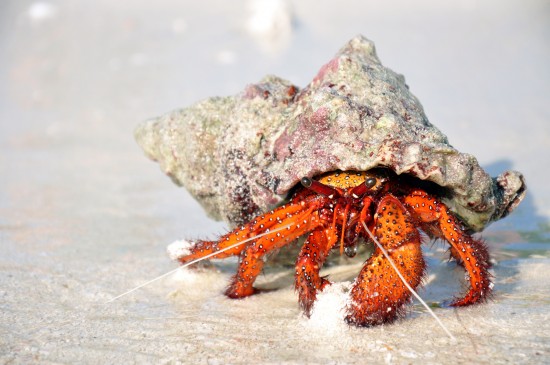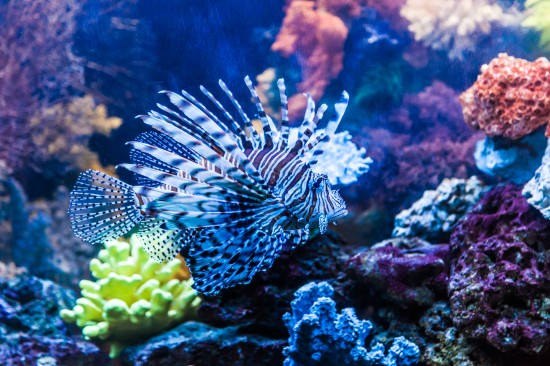
Anyone who sees a Jellyfish will be mesmerized by its stunning ability to glow in the dark. Here are some interesting information about the life history of Jellyfish and the theory behind their hypnotic glow.
What is a Jellyfish?
A Jellyfish is a gelatinous zooplankton that belongs to the family of Phylum Cnidaria. Anatomical research reveals that 95% of their body is of water. They neither have a brain nor a nervous system. And they don抰 have a skeletal system either. Majority of the Jellyfishes do not have eyes. Their interaction with the surroundings is very simple. They go up and down, move sideways and make physical contact with the foreign bodies in the sea. They distinguish between light and dark light with their sensory organs.
How old are these mysterious species?
Jellyfishes are among the oldest forms of life on earth. And surprisingly, these non-extinct species are a step above the single cell organisms. Studies reveal that Jellyfish fossils date back to the Cambrian Period that is about 600 million years old. Interestingly, the Cambrian Period not only cites the extinction of dinosaurs but also the existence of the Jellyfish during that time. Probably, these mysterious creatures may survive on oceans even if human lives become extinct!
Jellyfish as Pets:
These days, Jellyfish are found in a few home aquariums as pets. The concept of stocking the Jellyfishes as pets started a couple of decades ago, although initially the experts were doubtful whether these fragile creatures will survive in an unnatural surrounding or not. However, one can抰 just walk into an aquarium and purchase a pair of Jellyfish. And, buying a pet Jellyfish through online is also difficult even if you approach the largest dealers of fish aquarium in your place. This is because, they are delicate organisms that require a specially designed aquarium to maneuver around and stay healthy. However, there are specialized aquariums that sell desktop-like aquarium tanks at an affordable price. You can purchase any such tank and grow your Jellyfish safely. And apart from this, it would also be wise to install a reliable alarm system like the ADT Alarm System in your place not only to protect your aquarium but also to safeguard all your valuables from any fraudulent case of burglary or anything of that kind.
Reasons why it抯 difficult to keep Jellyfish in captivity
As 95% of the body of Jellyfishes is composed of water, it is highly possible that they may be sucked by the filtration system (used to purify the water) in the fish tank. They can neither be housed in the rectangular-shaped or square-shaped fish tanks as they may get just stuck in the corners. And if trapped, they don抰 have the thinking ability to come out of it. If there isn抰 any turbulence in the flow of water, then it might be disturbing for them and they may become as small as a tiny bowl.
A Jellyfish was first captivated in an aquarium a couple of decades back in Monterey California. This experiment was carried out by a German Oceanographer named Dr. Wolf Greve. For testing purposes, he came up with a circular fish tank in which water was circulated in a clockwise circular pattern. He used a circular fish tank that was referred to as Kreisal. This tank also housed some artic plankton. The circular motion of water gently pushed the artic planktons from the corners of the tank to the centre. This was essentially carried out to help the Jellyfish survive in the synthetic environment.
Does a Jellyfish really glow in the dark?
Visit any public aquarium and watch those strikingly beautiful varieties of Jellyfish. Any onlooker will be hypnotized on seeing these Jellyfishes glow in contrasting colors. So, does the Jellyfish really glow in the dark? Not really! Since a Jellyfish is translucent, the glow is only as a result of light passing through their body. Scientifically, they don抰 glow on their own. But theoretically, they are ever-glowing to our eyes!
 Produce the servicing patched with amazing goat fence alternative
Produce the servicing patched with amazing goat fence alternative
 Carried Into Battle - The History Of Horses And War
Carried Into Battle - The History Of Horses And War
 8 Exotic Pets For Families With Limited Space In The Home
8 Exotic Pets For Families With Limited Space In The Home
 Traits And Temperament Of The Chesapeake Bay Retriever
Traits And Temperament Of The Chesapeake Bay Retriever
 The Most Common Mistakes Novice Marine Aquarium Keepers Make
The Most Common Mistakes Novice Marine Aquarium Keepers Make
 The Origins Of The Great Pyrenees Dog Breed
The Origins Of The Great Pyrenees Dog Breed
Copyright © 2005-2016 Pet Information All Rights Reserved
Contact us: www162date@outlook.com